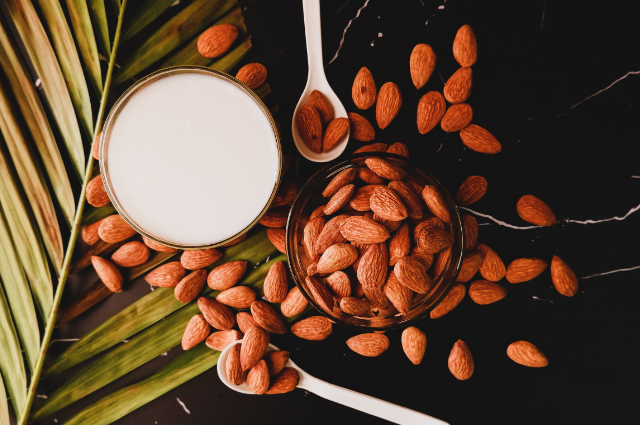
World Plant Milk Day is celebrated on 22nd August for the growing popularity of plant-based milk alternatives and their positive impact on health, the environment, and animal welfare. As the demand for plant milk continues to rise, it’s essential to explore and compare these alternatives to traditional cow’s milk.
Environmental Impact
Plant milk generally has a lower environmental footprint compared to cow’s milk. Producing plant-based milks requires less land, and water, and emits fewer greenhouse gases. Almond milk, for instance, has a smaller water footprint than dairy milk.
Nutritional Content
While cow’s milk is a rich source of calcium and vitamin D, plant milks vary in their nutritional profiles. Soy milk is comparable to cow’s milk in terms of protein content, while almond and rice milk may lack protein but offer other nutrients. Fortified plant milk can provide a similar nutritional profile to dairy milk.
Health Considerations
Plant milks cater to various dietary preferences and health concerns. For lactose-intolerant individuals or those with dairy allergies, plant milk offers a suitable alternative. Some people choose plant milk for potential health benefits, such as lower saturated fat content and no cholesterol.
Taste and Texture
The taste and texture of plant milk differ significantly. Soy milk has a creamy texture, while almond milk has a nutty flavor. Oat milk is praised for its smooth consistency, making it a popular choice for coffee drinks. Preferences in taste and texture play a significant role in choosing between plant and cow’s milk.
Ethical Considerations
Many consumers opt for plant milk due to ethical concerns related to animal welfare. The dairy industry has faced criticism for practices such as factory farming and the separation of calves from their mothers. Plant-based alternatives provide a cruelty-free option for those seeking to avoid these ethical issues.
Availability and Accessibility
Plant milks are now widely available in supermarkets and cafes, reflecting the growing demand. However, the availability of specific types of plant milk may vary depending on the region. Cow’s milk remains a staple in many traditional diets globally, emphasizing the importance of considering local dietary habits.
Cultural and Culinary Aspects
Cow’s milk has deep cultural roots in various societies, influencing traditional cuisines and culinary practices. Plant milks, however, are increasingly integrated into diverse recipes, reflecting a shift in culinary landscapes. The adaptability of plant milks in cooking and baking contributes to their acceptance in different cultural contexts.
Sustainability and Innovation
The plant milk industry continually evolves with innovations in sustainability. Some plant milk producers focus on using locally sourced ingredients, reducing packaging waste, and implementing eco-friendly farming practices. This commitment to sustainability aligns with the global push for more environmentally conscious food choices.
Economic Impact
The growing demand for plant milk has stimulated economic opportunities, with new plant-based companies emerging and established dairy producers diversifying their product lines. This shift in the market reflects changing consumer preferences and the economic viability of plant-based alternatives.
Consumer Education
World Plant Milk Day serves as an educational platform, helping consumers make informed choices. Understanding the nutritional content, environmental impact, and ethical considerations of different milk options empowers individuals to align their choices with personal values and health goals.
Future Trends
The trajectory of plant milk suggests continued growth and innovation. Emerging technologies may lead to even more sustainable production methods, and increased awareness of health and environmental issues could drive further adoption. The integration of plant milk into mainstream food culture appears to be a long-term trend.
Global Impact
As societies worldwide become more conscious of health, environmental, and ethical issues, the impact of plant milk extends beyond individual choices. The collective shift toward plant-based alternatives contributes to a global effort to address sustainability challenges and promote healthier lifestyles.
Conclusion
World Plant Milk Day serves as a platform to celebrate the diversity of plant-based milk options and their positive impacts on health, the environment, and animal welfare. The choice between plant and cow’s milk ultimately depends on individual preferences, dietary needs, and ethical considerations. As the popularity of plant milk continues to rise, it’s clear that they have become a mainstream and sustainable choice for many consumers worldwide.
